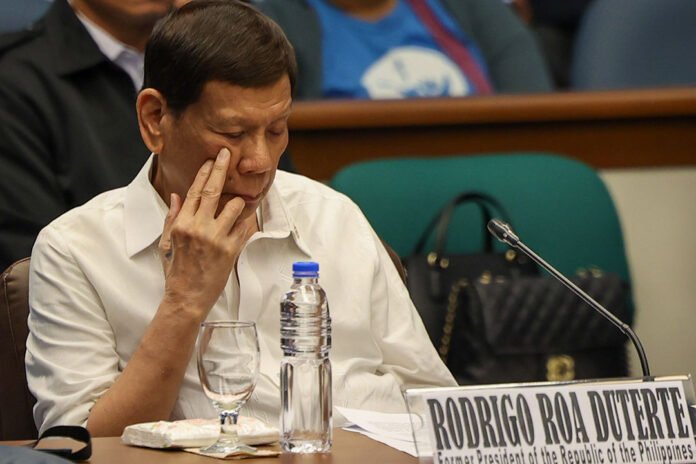Former President Rodrigo Duterte has shown no regret for his controversial drug campaign, which has resulted in over 6,000 deaths, the majority of which have occurred in disadvantaged communities. Speaking during a Senate Blue Ribbon committee, he accepted full responsibility for any police acts carried out under his command, including alleged extrajudicial killings. “I alone take full legal responsibility for what policemen did based on my orders,” Duterte remarked, adding that those officers just followed orders and should not face punishment.
Duterte dismissed allegations of monetary rewards for officers who killed drug suspects, emphasizing that “it is not state-sponsored killing.” He explained that, as a lawyer, he never instructed indiscriminate killing but advised officers to “encourage criminals to resist.” He even admitted having a “death squad” while serving as Davao City mayor, an approach he said continued into his presidency.
The hearing, led by Senate Minority Leader Aquilino Pimentel III, aimed to investigate whether Duterte’s anti-drug campaign adhered to laws and the Constitution. Former Senator Leila de Lima, a critic of Duterte’s drug policies, argued that “encouraging killing is not the duty of any official.” Duterte remained unyielding, saying his mission was to protect the Philippines and its people, and he “offers no apologies.”
Duterte defended the anti-drug campaign as a way to protect society from illegal drugs such as shabu and cocaine, citing self-preservation as a guiding principle. “I loathe drugs and those who peddle them,” he declared, affirming his belief that rehabilitation is essential but adding that he pursued the war on drugs as a duty to Filipinos.
The drug crackdown has continued under Duterte’s successor, President Ferdinand Marcos Jr., but with a greater emphasis on prevention and rehabilitation. However, the International Criminal Court (ICC) continues to investigate Duterte’s campaign on allegations of crimes against humanity. Despite this, Duterte’s stance remains unchanged: he acted in the nation’s interest, he says, and has no intention of apologizing.




